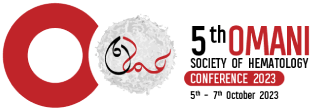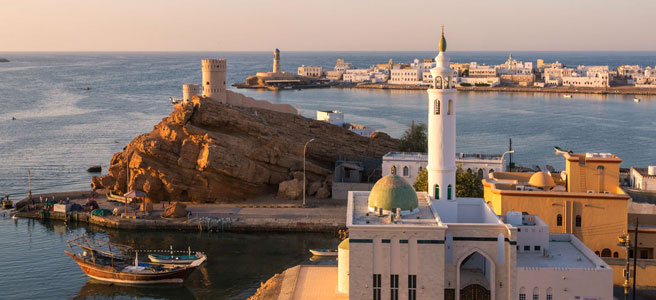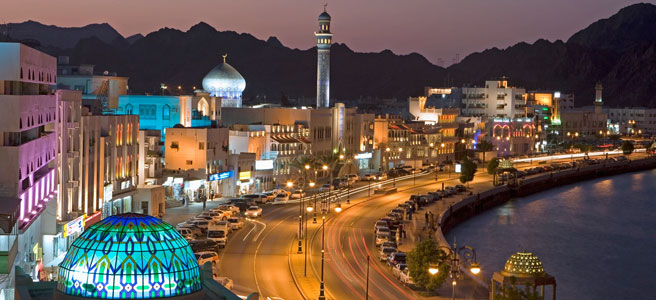Oman is a culturally diverse nation that is rich in history. It is blessed with natural beauty, environmental diversity and cultural heritage of which other destinations can only dream. The Sultanate is the second largest country on the Arabian Peninsula and forms its eastern most point.
Sharjah and Fujairah (UAE) separate the main part of Oman from the northernmost part of the Sultanate, bordering Musandam that extends into the Strait of Hormuz. It is for many westerners a country waiting to be discovered.
Historically, Omanis were seafarers and traders who dominated regional commodity trading in the Indian Ocean, East Africa and the Arabian Gulf. Thus, there was a succession of migrations which saw the growth of settlements along some parts of the East African coast.
Prior to the coming on stream of oil in 1964, the country was dependent on the agricultural sector and on fishing activities. In 1970, Oman had just 3 Km of asphalted roads. Asking a 50-year old Omani man to describe his country in the 1960s, the answer was simply: “There was nothing…”.
The country had only a few basic roads, a limited number of schools and little in the way of medical care; its people were poor and disadvantaged. Many of Oman’s wealthy and educated had left the country to seek their fortunes abroad. One of the first challenges His Majesty Sultan Qaboos bin Said faced was to reverse this “brain drain”, to encourage expatriate Omanis to return home and throw their weight behind the creation of a strong, educated, unified nation. This they did with enthusiasm, helping to build and develop the thriving, vibrant country that is modern day Oman.
Since then, His Majesty has strived to modernise his country and oil revenues have given him the opportunity to develop a modern infrastructure of roads, ports and airports, as well as first-class telecommunications and broadcasting systems. Some 50 hospitals have been opened throughout the country and educational Programmes for all ages successfully implemented.
It is believed that oil reserves may be exhausted one day and the country is therefore diversifying its economy, especially in the field of business tourism. Among the Gulf States, Oman has many advantages for developing tourism: its climate, varied scenery, archaeological and historical remains, as well as its friendly people. With its high standard of hotel accommodation, it can satisfy even the most demanding travellers.
As a major maritime silk route centre, Oman and its capital city of Muscat has been welcoming visitors to its pristine shores for centuries. It is a land of enormous diversity and natural beauty, which, while it has much to attract the discerning tourist, had until recent years been largely overlooked by today’s international travellers.
With careful strategic planning, the Sultanate now has an enviable infrastructure securely in place. Presenting a wide range of international hotels and a wealth of things to see and do, Oman is ready to offer its traditional hospitality to convention delegates from around the world.


